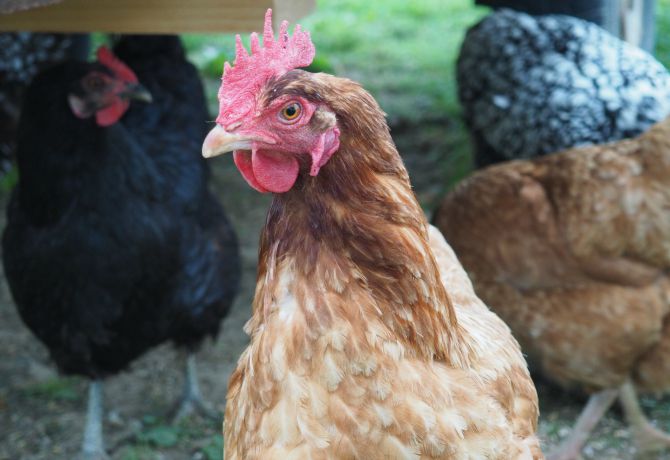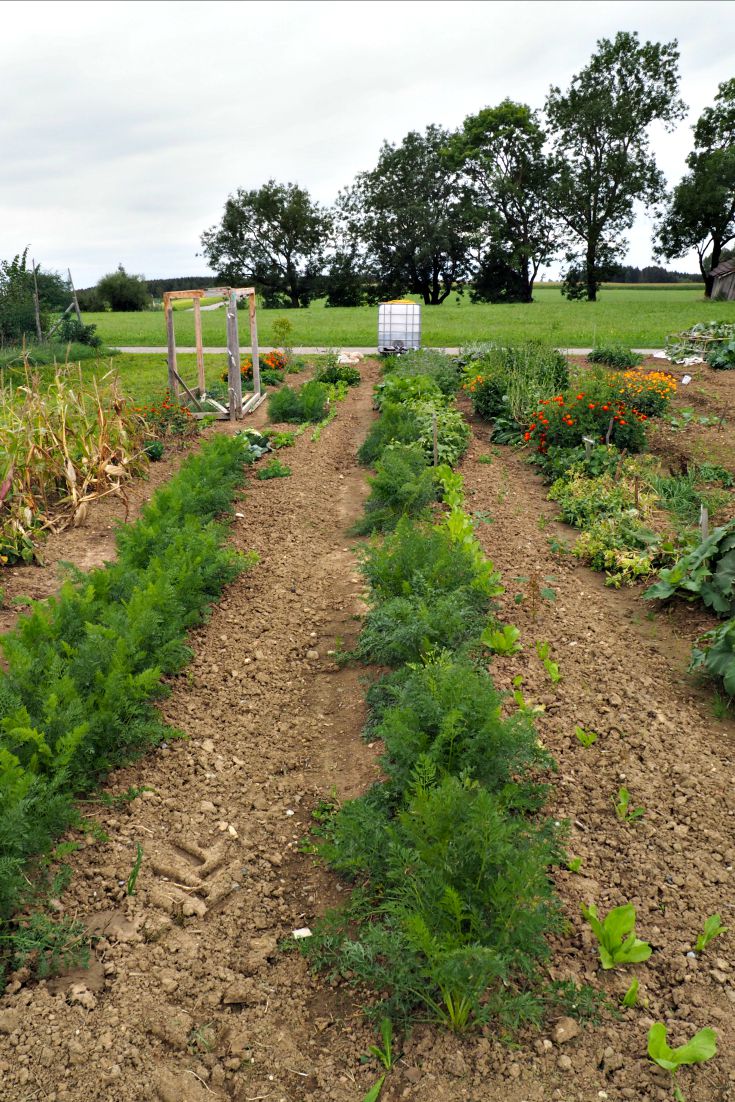As of today, I have been “WWOOFing” for a week. And since I don’t have too much to say about what we did today (you can read about my obsession with chickens tomorrow), I thought I would talk a bit about what exactly we are doing these first two weeks in Germany.
WWOOF stands for World Wide Opportunities on Organic Farms. It was started in the UK back in 1971 and has grown significantly since then. “WWOOF” can be used as a verb – WWOOFing, the act of working on one of these farms – or as a noun – WWOOFer, someone who WWOOFs. These opportunities are available all over the world on every continent (except Antarctica…bummer). Get some ideas for where you could go here!
The basic premise of WWOOFing is that the traveler works on an organic farm in exchange for food and lodging from their hosts. And of course, learn about whichever facets of organic farming the farmers embrace. Every farm will have something different to offer.
In the past week at the farm where we are working, we have harvested vegetables, weeded and dug sections of the garden, fed chickens, cooked, washed windows, and made schnapps. We have also learned a lot about eating local in this region of Germany. Our hosts are even going to take us grocery shopping later this week to teach us how to find high quality foods here. I really appreciate how much they value local and organic foods, and that they are passing that on to us. I just wish we could buy eggs like their from the grocery store!
Why WWOOFing?
Everyone will have their own motivations for wanting to WWOOF. Some may be interested in learning more about organic and local foods. Some may want to try their hand at small-scale organic farming. Some may be looking for a home stay during their travels in order to learn about the culture first hand. Some may simply be looking for free food and bed while they are traveling.
Our reasons combine a little bit of all of the above. We would love to work on an organic farm like the one we are one for our whole time in Germany. Not having to pay for food or rent would be amazing. But also, organic farming is something that has always greatly interested me. Food quality and sustainability are incredibly important to me, and I plan on having my own small organic farm some day. I certainly couldn’t turn down the chance to work on such a farm! Finally, once we found out that it would not be sustainable for us to work on the farm while going to school (in a different town, too!), we still looked forward to the chance to get advice and learn from our hosts about German culture and living here. William also appreciates the chance to practice his German before school starts.
Our farm requires us to work 6 hours a day, 5-6 days a week, as well as help with the cooking and/or cleaning of eat meal that we eat. This leaves evenings to explore the local area, and weekends for longer excursions. Or for us, to rest and figure out what we are doing with our new lives in Germany! Each farm will have different requests, but you should be prepared to work hard and get dirty.
All in all, WWOOFing is a great experience. It is incredible satisfying and a wonderful learning experience. And you will likely get to teach your hosts a few things, too! Even if it is as simple as teaching them the word “rag,” like I did today.
Note that “organic” does not mean certified by any governing body. Here is what WWOOF Deutschland says about their organic farms:
WWOOF hosts should follow the International Federation of Organic Agriculture Movements (IFOAM) organic principles as listed below, but need not be registered with a certificating organization.
- The Principle of Health: organic agriculture should sustain and enhance the health of soil, plant, animal human and planet as one and indivisible
- The Principle of Ecology: organic agriculture should be based on living ecological systems and cycles, work with them, emulate them and help sustain them
- The Principle of Fairness: organic agriculture should build on relationships that ensure fairness with regard to the common environment and life opportunities
- The Principle of Care: organic agriculture should be managed in a precautionary and responsible manner to protect the health and well-being of current and future generations and the environment
Getting Started with WWOOFing
The first step to WWOOFing is to pick which country (or countries) you wish to go to and visit their specific WWOOFing website (you can find links to these here) and look for farms. For example, we went to the WWOOF Deutschland site and found that there were two farms very close to Kaufbeuren. Most sites will let you search by region, what languages they speak, diet, if they allow pets or children, how long you can stay, etc. Most sites will let you search for free, but will require a paid membership to get the contact information of the farms.
There is another WWOOFer on our farm for the same period of time that we are here. She said that she chose to WWOOF in Germany because of the countries that she was considering, they had the best website. This is certainly something to consider – the more information offered from the organization and the farm itself the better.
Once you find a few farms that you like, all that is left is to contact them, get more information, and start planning your new adventure.
If you have ever done WWOOFing before, I would love to hear about your experience! Or if you have any questions, I would be happy to answer them.



Thank you for this explanation! People keep asking me how you found this farm and now I can refer them to your blog. I love reading about your adventures!